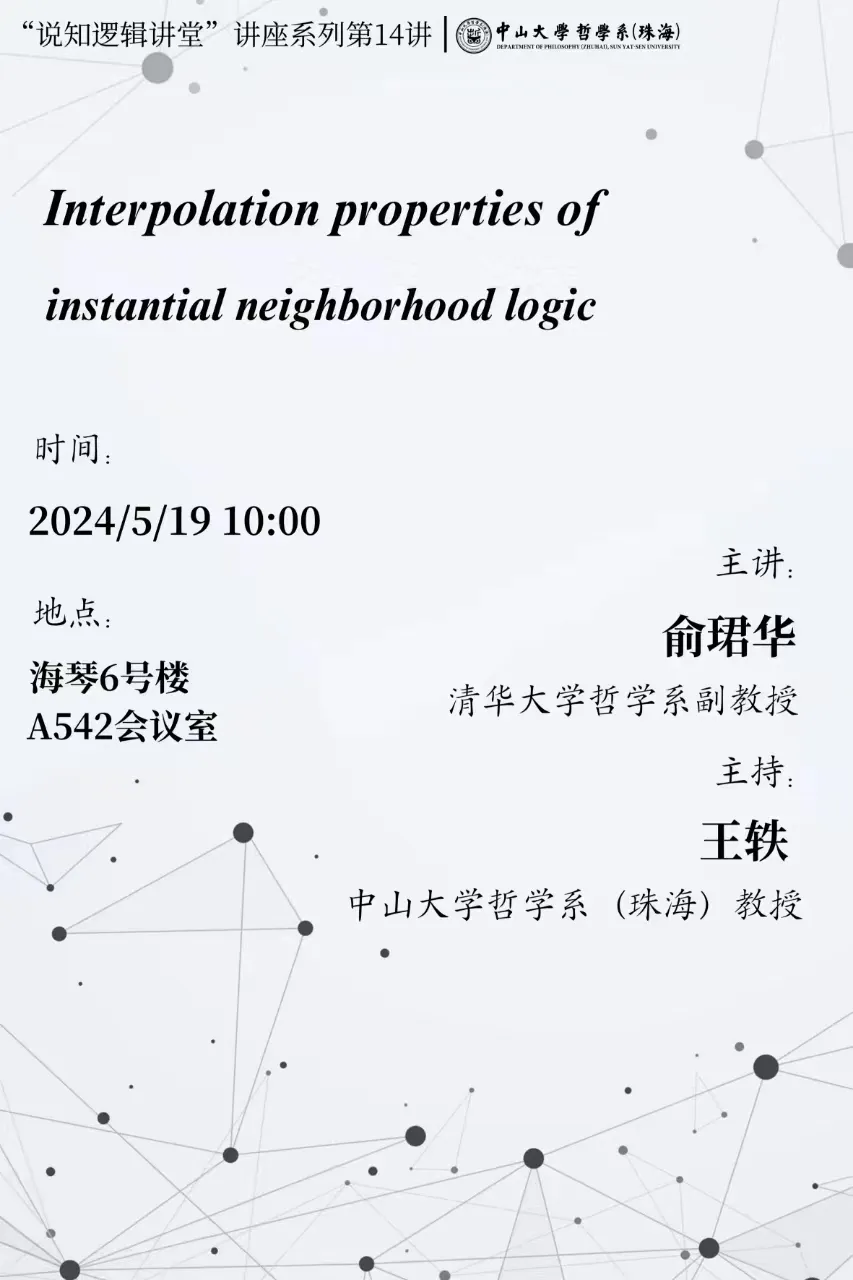学术资讯|说知逻辑讲堂讲座系列第十四讲:含例邻域逻辑的插值性质
Interpolation properties of instantial neighborhood logic

1
题目
Interpolation properties of instantial neighborhood logic
2
主讲
俞珺华 清华大学哲学系副教授
3
主持
王轶 中山大学哲学系(珠海)教授
4
主办
中山大学哲学系(珠海)
5
时间
2024年5月19日(周日) 10:00
6
地点
中山大学珠海校区
海琴6号楼 A542会议室
讲座内容简介
With a reasonable complexity of its satisfiability problem, Johan van Benthem's instantial neighborhood logic (INL) has an expressive power in neighborhood models strictly stronger than monotone (existential-universal) and double-existential operators combined. This strengthened expressive power is due to the ‘instantial operator’ in INL’s language which makes formulas like [](A1, ..., An; A0) with an arbitrary natural number n, meaning that the current point has a neighborhood in which A0 is universally true, and each of A1, ..., An is existentially true.
In this talk we focus on interpolation properties of INL via its proof theory. When designing a sequent calculus for INL, one is led to infinitely-many rule schemes for the instantial operator, due to its non-fixed arity and compounded truth condition. As a consequence, the standard method by Shoji Maehara for Craig-Lyndon interpolants turns out to be highly combinatorial.
Recently, Yanjing Wang found that an ‘alternating-sorted’ logic called ‘point-set neighborhood logic’ (PSNL) is equally expressive compared to INL in neighborhood models. PSNL has two unary modalities, one turns a ‘point-formula’ (evaluated on points) into a ‘set-formula’ (evaluated on sets of points), and the other turns a set-formula into a point-formula. Each of these two behaves like the normal K modality, which enables us to provide an easier sequent calculus for PSNL. Equipped with Wang’s back-and-forth translations between PSNL and INL, we can offer an alternative (indirect but much easier) proof of INL’s Craig-Lyndon interpolation property. More importantly, on PSNL it is easier to apply Marta Bilkova's method of constructing uniform interpolants, and then Wang’s translations help us to reach a proof of INL’s uniform interpolation property.
主讲人简介
俞珺华,清华大学哲学系副教授。
来源|哲珠新媒体
海报|欧阳欢
编辑|王志远
初审|韩 珩
审核|卢 毅
审核发布|屈琼斐


